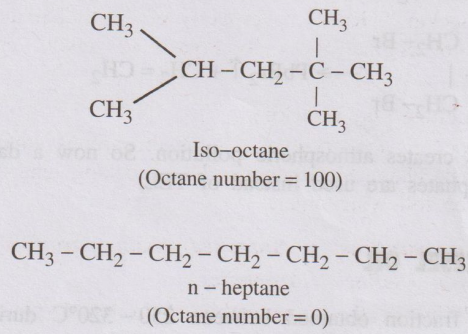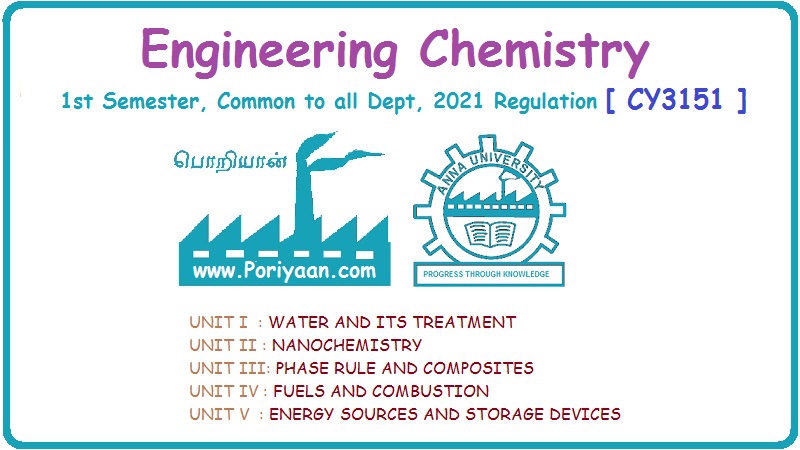Engineering Chemistry: Unit IV: a. Fuels
Knocking
Definition, Causes, Improvement
Knocking is a kind of explosion due to rapid pressure rise occurring in an IC engine.
KNOCKING
Definition
Knocking is a kind of explosion due to rapid pressure rise
occurring in an IC engine.
1. Causes of knocking in S.J (Spark Ignition) Engine [Petrol engines]
In a petrol engine, a mixture of gasoline vapour and air at 1:17
ratio is used as fuel.
This mixture is compressed and ignited by an electric spark. The
products of oxidation reaction (combustion) increases the pressure and pushes
the piston down the cylinder.
If the combustion proceeds in a regular way, there is no problem
in knocking. But in some cases, the rate of combustion (oxidation) will not be
uniform due to unwanted chemical constituents of gasoline. The rate of ignition
of the fuel gradually increases and the final portion of the fuel-air mixture
gets ignited instantaneously producing an explosive sound known as “Knocking”.
Knocking property of the fuel reduces the efficiency of engine. So a good
gasoline should resist knocking
Chemical structure and knocking
The knocking tendency of fuel hydrocarbons mainly depends on their
chemical structures. The knocking tendency decreases in the following order.
Straight chain paraffins > Branched chain paraffins >
Cycloparaffins > Olefins > Aromatics.
Thus olefins of the same carbon-chain length possess better
anti-knock properties than the corresponding paraffins.
2. Improvement of antiknock characteristics
Prevention
The octane number of fuel can be prevented by
1. blending petrol of high octane number with petrol of low octane
number, so that the octane number of the latter can be improved,
2. the addition of anti-knock agents like Tetra-Ethyl Lead (TEL),
3. now a days aromatic phosphates are used as antiknock agent
because it avoids lead pollution.
OCTANE NUMBER (or) OCTANE RATING
Octane number is introduced to express the knocking
characteristics of petrol. It has been found that n-heptane knocks very badly
and hence, its anti-knock value has been given zero. On the other hand,
iso-octane gives very little knocking and so, its anti-knock value has been
given 100.
Definition
Thus, octane number is defined as the percentage of iso-octane
present in a mixture of iso-octane and n-heptane.'

Engineering Chemistry: Unit IV: a. Fuels : Tag: Engineering Chemistry : Definition, Causes, Improvement - Knocking
Related Topics
Related Subjects
Engineering Chemistry
CY3151 1st Semester | 2021 Regulation | 1st Semester Common to all Dept 2021 Regulation
